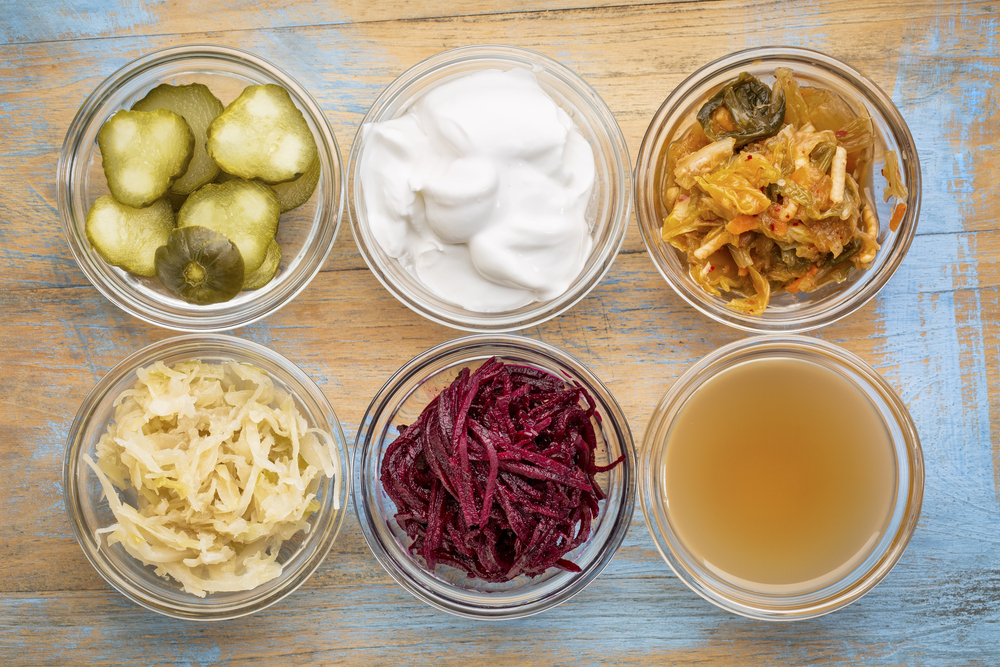Fermented Foods
Last week we dove into the health benefits of probiotics, so this week we’re here to share foods that contain naturally-occurring sources of probiotics. These foods are called “fermented foods”. Fermented foods contain good bacteria that can help the gastrointestinal tract with digestion and immunity. Curious to know which foods can provide a boost of helpful bacteria? Try including some of these fermented foods in your diet for an array of health benefits, not to mention flavor!

Sauerkraut is a German dish made of pickled shredded cabbage. It contains vitamins A,B,C and E which can boost brain power and combat depression and anxiety.
Add kimchi into your diet if you’re looking to boost energy, enhance digestion and improve your skin! Kimchi is a traditional Korean spicy side dish which is fermented.
Even the most wary of eaters have already tried (and loved) pickles, so we deem the pickle our gateway drug into fermented foods.
Miso is a traditional Japanese seasoning bursting with umami (savory) flavor. It is produced by fermenting soybeans with sugar, salt and sometimes grains. A little bit goes a long way, since it is nutritionally dense and has remarkable disease-fighting properties that have been tested through the ages.
Tempeh, a tofu-like brick, made by fermenting cooked soybeans with a mold, is firm with an earthy flavor, making it a great meat alternative. Since the whole soybean is used, it’s also a great way to add some extra fiber to your meal.
Kefir is a tart beverage made by fermenting milk with bacteria (the good kind!) and yeast. It literally means “good feeling” in Turkish, and it is great for regulating digestion, strengthening bones and teeth thanks to its high calcium content. Kefir also supports the nervous system and energy metabolism with B vitamins.
Chances are, you’ve already enjoyed yogurt, a supermarket staple. Look for varieties with live active cultures and probiotics such as L. bulgaricus, S. theramophilus, bifidobacterium lactis, L. acidophilus, L. casei. In addition to being a source of probiotics, yogurt is a great source of protein, calcium, riboflavin, and vitamin B12. Feeling adventurous? Try making your own yogurt at home using an instant-pot and milk.

